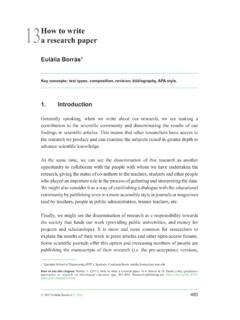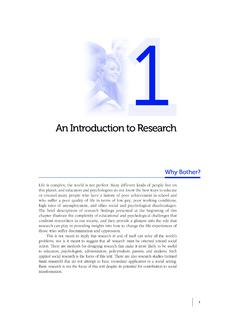Transcription of COMPETENCE BASED FRAMEWORK FOR CURRICULUM …
1 COMPETENCE BASED FRAMEWORK FOR CURRICULUM DEVELOPMENT. COMPETENCE BASED FRAMEWORK . FOR CURRICULUM DEVELOPMENT. R. Nikolov, E. Shoikova, E. Kovatcheva PICTET: EQF- BASED professional ICT training for Russia and Kazakhstan Sofia, 2014. COMPETENCE BASED FRAMEWORK FOR CURRICULUM DEVELOPMENT. Prof. Dr. Roumen Nikolov, Eng. Elena Shoikova, Docent Dr. Eugenia Kovatcheva State University of Library Studies and Information Technologies TEMPUS project PICTET: EQF- BASED professional ICT training for Russia and Kazakhstan 543808-TEMPUS-1-2013-1-BE-TEMPUS-JPHES. ISBN: 978-619-185-015-0. ISBN online: 978-619-185-016-7. Publisher: Za bukvite, O'pismeneh Sofia, 2014.
2 COMPETENCE BASED FRAMEWORK . FOR CURRICULUM DEVELOPMENT. PICTET: EQF- BASED professional ICT training for Russia and Kazakhstan Abstract This document is intended to provide an overview of the COMPETENCE BASED FRAMEWORK for university CURRICULUM development. The document serves as a handbook designed for the academic staff training workshop held in ULSIT, Sofia, Bulgaria on 24-28 February 2014. within the FRAMEWORK of the European funded PICTET Tempus project. R. Nikolov, E. Shoikova, E. Kovatcheva The main objective of the handbook is the development and advancement of procedures and tools for designing and implementing COMPETENCE BASED CURRICULUM matching competences in higher education and economy.
3 The document serves as a reference handbook designed for the academic staff training workshop held in ULSIT, Sofia, Bulgaria on 24-28 February 2014 within the FRAMEWORK of the European funded PICTET Tempus project. Also, it supports the designed technology-enhanced training course COMPETENCE BASED FRAMEWORK for CURRICULUM development . integrated in Moodle. This document provides an overview of the COMPETENCE BASED FRAMEWORK for CURRICULUM development. Sections 1-2 present the context and common used COMPETENCE definitions. Section 3 provides information about three COMPETENCE dictionaries as effective tools for building COMPETENCE profiles and catalogs where each COMPETENCE is presented by definition and behaviour indicators.
4 Section 4 presents the proposed systematic methodology for COMPETENCE BASED CURRICULUM development. The methodology consists of six phases: (1) Conceptualisation; (2) Planning; (3). Data collection; (4) Data analysis & Create catalog of competences; (5) Develop COMPETENCE BASED CURRICULUM and (6) Develop applications & Pilot test. Section 5 is referencing frameworks and data collection tools as the European Qualifications FRAMEWORK for lifelong learning and various Web BASED information systems for COMPETENCE modeling and assessment: the European e- COMPETENCE FRAMEWORK , Bulgarian COMPETENCE Assessment Information System MyCompetence, USA O*NET and ESCO.
5 Sections 6 to 9 explain in brief procedures for creating catalog of competences and developing COMPETENCE BASED CURRICULUM , as well as the proposed sample template for describing innovative learning scenarios and behaviour assessment for COMPETENCE BASED earning. The last section is focused on the Computer Science Curricula 2013, CURRICULUM Guidelines for Undergraduate Degree Programs in Computer Science, December 20, 2013, The Joint Task Force on Computing Curricula, Association for Computing Machinery (ACM), IEEE Computer Society. Contents Context .. 2. The Concept of COMPETENCE .. 4. COMPETENCE Dictionaries .. 6.
6 Workitect Competency Dictionary .. 6. G-COMPS .. 6. Harvard University Competency Dictionary .. 6. Methodology for COMPETENCE BASED CURRICULUM Development .. 7. Frameworks and Data Collection Tools .. 9. The European Qualifications FRAMEWORK for lifelong learning (EQF) .. 9. The European e- COMPETENCE FRAMEWORK .. 10. COMPETENCE Assessment Information System MyCompetence .. 11. The Occupational Information Network O* 14. European Skills/Competences, qualifications and Occupations .. 14. Create Catalog of Competences .. 16. Develop COMPETENCE BASED CURRICULUM .. 17. Sample template for describing innovative learning 23.
7 Computer Science Curricula 2013, CURRICULUM Guidelines for Undergraduate Degree Programs in Computer Science, December 20, 2013 .. 27. References: .. 28. Notes .. 30. Notes .. 31. COMPETENCE BASED FRAMEWORK FOR CURRICULUM DEVELOPMENT. 1. COMPETENCE BASED FRAMEWORK FOR CURRICULUM DEVELOPMENT. Context With labour markets increasingly relying on higher skill levels and transversal competences, higher education should equip students with the advanced knowledge, skills and competences they need through their professional lives.. (The Bologna Process 2020). In a recent communication, the European Commission called upon the Council to endorse an updated FRAMEWORK for future European cooperation in Education and Training, with four strategic objectives for the years leading up to 2020: Make lifelong learning and learner mobility a reality; Improve the quality and efficiency of provision and outcomes; Promote equity and active citizenship; Enhance innovation and creativity, including entrepreneurship, at all levels of Education and Training.
8 Educational and training systems must generate new skills, respond to the nature of new jobs which are expected to be created, as well as improve the adaptability and employability of adults already in the labour force. Universities should offer innovative curricula, teaching methods and training/retraining programs which include broader employment-related skills, along with the more discipline-specific skills, to enhance the employability of graduates and to offer broad support to the workforce more generally. Many researches about educational system point the attention on COMPETENCE - BASED education is at a crossroads.
9 Traditional content driven and time BASED models of education are criticised as being too theoretical and for failing to meet the demands of practice, while newer ones BASED on skills and competency are called into question for being atomistic, controlling and confined to the predictable. The need of changes is extremely urgent in other to meet the rapidly changes in the economy, industry and social environment. The COMPETENCE BASED Education (CBE) is a systematic yet flexible approach. It focuses on defining in measurable terms what students are to learn and then evaluating how well they can perform designated tasks after instruction.
10 Expected behaviours or tasks, conditions for their performance, and acceptable standards are shared with students. Some of the main focal points of CBE are: its purpose is to promote learners to achieve a presetting ability, each individual learner's behaviour in the learning process is of concern; its evaluation is to emphasize criterion-referenced. The main reason for CBE popularity is the expected reduction of the gap between the labour market and the school system. Even before the beginning of the 21st century academic education had been moving away from the traditional knowledge- BASED approach towards more COMPETENCE - BASED teaching.




